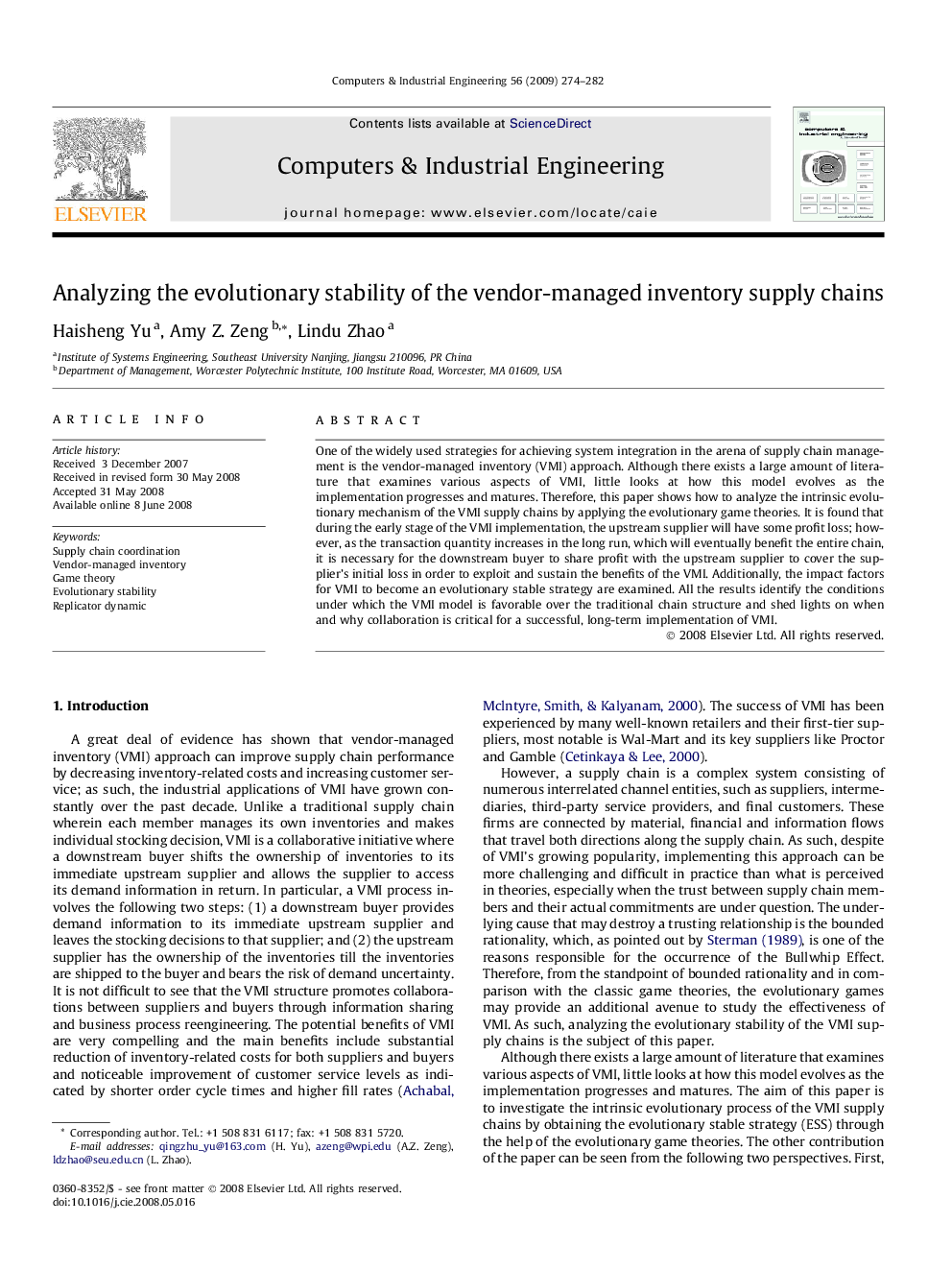| Article ID | Journal | Published Year | Pages | File Type |
|---|---|---|---|---|
| 1135386 | Computers & Industrial Engineering | 2009 | 9 Pages |
One of the widely used strategies for achieving system integration in the arena of supply chain management is the vendor-managed inventory (VMI) approach. Although there exists a large amount of literature that examines various aspects of VMI, little looks at how this model evolves as the implementation progresses and matures. Therefore, this paper shows how to analyze the intrinsic evolutionary mechanism of the VMI supply chains by applying the evolutionary game theories. It is found that during the early stage of the VMI implementation, the upstream supplier will have some profit loss; however, as the transaction quantity increases in the long run, which will eventually benefit the entire chain, it is necessary for the downstream buyer to share profit with the upstream supplier to cover the supplier’s initial loss in order to exploit and sustain the benefits of the VMI. Additionally, the impact factors for VMI to become an evolutionary stable strategy are examined. All the results identify the conditions under which the VMI model is favorable over the traditional chain structure and shed lights on when and why collaboration is critical for a successful, long-term implementation of VMI.
